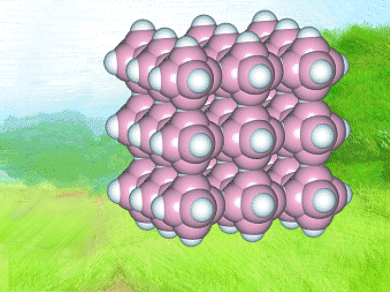Metal-organic frameworks (MOFs) are proving useful leads in sensor technology, separation science, catalysis and gas storage. Synthesizing novel MOFs with tailored properties has until now relied on rigid, designed building blocks. However, the use of flexible components might allow chemists to construct MOFs with even more diverse properties and applications by endowing the structures with the ability to change structure depending on conditions.
Christopher Pigge, University of Iowa, USA, highlights some of the advantages, including more diversity, and also the disadvantages, such as the potential for lower stability.




